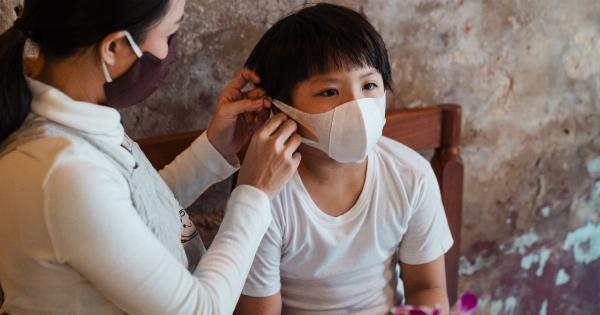Koxaki virus is a common virus that affects individuals of all ages. It is a member of the enterovirus family and is primarily spread through contact with infected individuals or contaminated surfaces.
Although most cases of Koxaki virus are mild, it can sometimes lead to serious health complications, particularly in young children and infants. Understanding the symptoms, causes, and prevention tips can help individuals protect themselves from this virus.
Symptoms of Koxaki Virus
The symptoms of Koxaki virus can vary depending on the severity of the infection. In most cases, individuals may experience mild to moderate symptoms that can resolve on their own within a few days. Common symptoms of Koxaki virus include:.
- Fever
- Sore throat
- Headache
- Rash
- Body aches and pains
- Fatigue
- Loss of appetite
- Nausea and vomiting
In some cases, Koxaki virus can lead to more severe complications, particularly in young children and infants. These complications may include:.
- Heart complications, such as myocarditis
- Brain and central nervous system complications, such as meningitis
- Paralysis
Causes of Koxaki Virus
Koxaki virus is primarily spread through contact with infected individuals or contaminated surfaces. The virus can be transmitted through:.
- Close contact with an infected person, such as touching or hugging
- Sharing utensils or cups with an infected person
- Contact with contaminated surfaces, such as doorknobs or toys
- Contact with contaminated food or water
Once the virus enters the body, it can infect the cells of the body’s tissues, particularly those of the respiratory and gastrointestinal systems.
Prevention of Koxaki Virus
There are several steps individuals can take to prevent the spread of Koxaki virus. These steps include:.
- Practicing good hygiene, such as washing hands frequently with soap and water
- Avoiding close contact with individuals who are infected with the virus
- Disinfecting surfaces that may be contaminated with the virus
- Not sharing utensils, cups, or other personal items with infected individuals
- Avoiding contact with contaminated food or water
- Getting vaccinated against the virus, if a vaccine is available
It is important for individuals to take these steps to protect themselves from the virus, particularly if they are at a higher risk of developing complications, such as young children, infants or individuals with weakened immune systems.
What to Do If You Suspect Koxaki Virus
If you suspect that you or someone you know has been infected with Koxaki virus, it is important to seek medical attention immediately. A healthcare professional can provide a proper diagnosis and recommend appropriate treatment, if necessary.
In most cases, treatment involves managing the symptoms of the infection, such as fever or pain. However, in severe cases, hospitalization may be necessary.
Conclusion
Koxaki virus is a common viral infection that affects individuals of all ages.
While most cases of the virus are mild and can resolve on their own within a few days, it can sometimes lead to serious health complications, particularly in young children and infants. Understanding the symptoms, causes, and prevention tips can help individuals protect themselves from this virus and reduce the risk of complications.






























